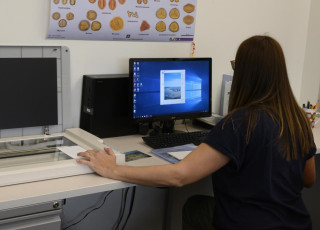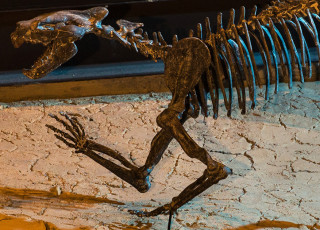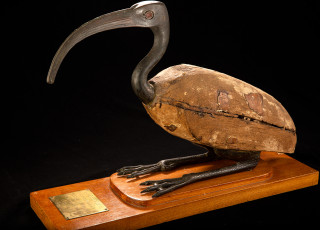Cats are Affected By COVID-19, Too
A study of domesticated animals found cats and ferrets are more susceptible to catching the new coronavirus than other animals. Credit: Riley Black
By Riley Black
All around us, COVID-19 continues to loom. Salt Lake City and County are under mandatory mask orders as the number of cases continues to climb. But it’s not just humans being affected by the new coronavirus. Our feline friends are affected by COVID-19, too.
The respiratory syndrome that causes the COVID-19 disease is part of a group of viruses called coronaviruses. Some cause diseases in mammals. Others in birds. What binds them all together is the face that under intense microscopy, the infecting virus is dotted with little protrusions that give it the look of a halo or corona.
The first coronaviruses were discovered nearly a century ago among chickens. Bats, too, have been found to carry and be affected by coronaviruses, which have jumped to other species like camels before infecting humans. That means some coronaviruses are what experts call zoonotic – diseases that can be transmitted from other animals to humans.
Given the way these diseases can pass between species, then, it’s important to know what species can carry or transmit coronaviruses, particularly the specific virus that causes COVID-19. While bats are suspected as the source of the novel coronavirus, this hasn’t yet been confirmed and the virus may have passed through an intermediate species before infecting humans. Researchers are still trying to pick out the path the virus took to us.
Part of untangling the story involves determining which animals can be infected by and carry the virus that causes COVID-19. To that end, in a new paper published in Science, a large team of veterinarians and disease experts looked at how susceptible cats, dogs, pigs, chickens, and other domesticated animals are to the new coronavirus.
In the laboratory tests, the researchers found that pigs, chickens, and ducks were not good carriers or transmitters of the virus. Dogs aren’t very susceptible to the virus, either. But ferrets and cats are significantly more susceptible than the other domesticated animals to the novel coronavirus.
This doesn’t mean that are feline friends are spreading the virus to us. The Centers for Disease Control of Prevention notes that “At this time, there is no evidence that animals play a significant role in spreading the virus that causes COVID-19.” But as disease specialists race to study this new disease and how to curtail its spread, knowing what animals are affected matter. Ferrets were already used in animal studies because of similarities between their respiratory system and ours, for example, and a study on domestic cats suggests that social distancing – for felines and ourselves – may be key to preventing infection.
As much as we might think of ourselves as separate from other animals and the wild, the fact is that we’re animals, too. We share a history with all other life on the planet – including our mammalian relatives. What affects them can affect us, and human activities that encroach into animal habitats can lead us to encouter zoonotic diseases more often. We’ll need to look to species other than our own if we’re to understand the nature of the virus that only knows us as another form of host.
Riley Black is the author of Skeleton Keys, My Beloved Brontosaurus, Prehistoric Predators, and a science writer for the Natural History Museum of Utah, a part of the University of Utah in Salt Lake City. Our mission is to illuminate the natural world and the place of humans within it. In addition to housing outstanding exhibits for the public, NHMU is a research museum. Learn more.



